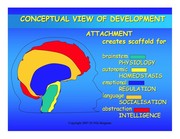Discipline – Four “Must-Ask Questions”
 What Are the Long-Term Effects of Discipline Books’ Approaches?
What Are the Long-Term Effects of Discipline Books’ Approaches?
There are so many discipline books out there. Do we know the long-term effects of these approaches?
Many approaches to discipline give you tricks and techniques to gain short-term compliance out of your kids, but fail to help them grow into self-motivated, self-directed beings capable of respectful and responsible behaviors when you are not around to badger them.
Here are the four questions you need to ask yourself when evaluating any particular discipline book or technique.
- How does this approach affect your relationship with your child?
If your chosen method of discipline ruins your relationship with your child, then what have you gained? First, you will lose all ability to guide them by the time you reach the most difficult years — the teen years. But more importantly than that, I can think of no more painful existence than losing the heart of your son or daughter. - How does it impact their desire to become respectful and responsible? When children are given the nourishment and guidance they need, they naturally develop into self-motivated, self-directed individuals who want to be respectful and responsible in their actions. Many methods of discipline actually decrease children’s growing desire to to act from our natural well of empathy and kindness.
- Does the method disrupt the child’s emotional openness?
We all start off with a relatively open and fluid emotional system that is designed to grow and become more integrated with higher brain centers like the pre-frontal cortex over time. But many approaches aimed at short-term compliance cause our kids to suppress and repress their emotions which diminishes their overall emotional intelligence and capacity for self-regulation. - How does it alter their maturation over time?
Discipline approaches that fail to provide a healthy balance of “the five essential elements of relational nourishment” will end up stunting your child’s growth. Since maturation is the ultimate resolution to all discipline problems, make sure that long-term growth is not sacrificed too often for short-term compliance.
![The Take Home Message image]() The Take Home Message
The Take Home Message
Take Home: Knowing how a discipline method plays out over the long run empowers you to choose the best approach for your particular child and family. Every child is different. Every parent is different. Each phase of development brings its own unique challenges and opportunities, as does each new moment. By asking the right questions, you will find your way to the right answers.
Try: Develop a “big picture” mindset when it comes to discipline, and keep these long-term goals in mind:
- I want my child to always trust me and for us to remain intimate and emotionally close.
- I want to preserve his/her desire to be respectful and responsible.
- I want to keep his/her heart open and soft, preserving the development of emotional intelligence.
- And I want them to grow into their full-potential.
A Free and Easy Way to Support Kindred’s Nonprofit Work!
init300_new(‘http://www.goodsearch.com/’, ‘charityid=864358’);


